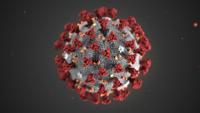A directive from Washington Gov. Jay Inslee that canceled elective surgeries will impact hundreds of patients in Yakima County.
Inslee issued new restrictions Thursday on non-urgent elective surgeries in an attempt to help conserve personal protective equipment needed by health care providers, such as face masks and gloves.
Among the banned procedures are joint replacements, cataract or lens surgeries, non-urgent cardiac procedures, cosmetic procedures and some endoscopy and interventional radiology services.
The restrictions apply to all hospitals, ambulatory surgery centers, dental, orthodontic and endodontic offices. Doctors can still perform elective surgeries for people where delaying the surgery would cause harm to the patient within the next three months. Patients with a history of heart attacks, strokes, or motor vehicle accidents are exempt, a news release said.
Tim Pfarr, spokesman for the Washington State Hospital Association, said the agency worked closely with the governor’s office to come up with guidelines that would not cause unnecessary harm while also protecting health care workers.
“We fully support this strategy because it preserves protective equipment like masks, gloves and gowns to protect health care teams. That is our No. 1 priority,” he said. “Recommending this kind of action is not something we do lightly, because it does have an impact on the viability of our health system. But it will have an immediate impact on preserving essential supplies.”
Yakima providers say they will comply with the mandate, but warn the financial impacts could be devastating and that hundreds of people will be impacted.
Procedures postponed
The Washington State Medical Association, along with 23 state specialty and county medical societies, announced support of the governor’s decision on Friday. Seattle Children’s Hospital and the Seattle-based UW Medicine also announced they would be stopping elective procedures.
Pfarr emphasized that the directive does not halt urgent procedures that would cause immediate harm to patients if they weren’t performed. Doctors will still be allowed to tend to patients who need their appendixes removed or who have broken bones, he said.
“We hope the public will understand the severity of this outbreak and that these steps have been taken to keep the health care system from being overwhelmed,” he said. “If the system becomes overwhelmed, there will be patients left without the ability to get the care they need.”
Rebecca Teagarden, spokeswoman for Virginia Mason Memorial hospital, announced Friday that the hospital is postponing all elective surgeries to help conserve personal protective equipment for health care providers, as directed by Inslee.
Sara Dawson, director of surgical services at Prosser Memorial Health, said staff there have been forced to ration supplies.
“It is important for the public to understand that this directive is to help hospitals conserve personal protective equipment,” she said. “It is not because the virus can be spread in a sterile operating room.”
Dawson said several patients have called in to cancel their appointments, which she attributed to fear of venturing out to a hospital rather than a public desire to help conserve personal protective equipment for staff. She said the patients the hospital has called to postpone appointments have been understanding.
“This will impact hundreds of patients,” she said. “We emphasize that this is not a cancellation, but merely a postponement.”
Prosser Memorial Hospital will continue to serve patients with urgent surgical needs, Dawson said.
But the hospital will feel an impact.
“As a critical access hospital in which elective surgeries make up more than 85% of our surgical cases, the potential financial impact could be devastating,” she said.
Some clinics have been proactive about getting the word out to their patients. A pre-recorded message about the directive greets callers who dial Apple Valley Dental and Braces on Summitview Avenue.
The clinic is only doing emergency surgeries. Patients who qualify includes those who have swelling in the face, jaw or neck or intense, throbbing pain that wakes them in the night or isn’t helped by over-the-counter painkillers, the recording notes.
The recording asks those without pain or infection to be patient and wait for normal operating hours. It also strongly advises that people not go to the hospital for dental pain, as doing so increases exposure and also decreases hospital capacity.
Access to care and personal protective equipment
Pfarr acknowledged that the directive could impact clinics’ ability to provide care.
“There are real impacts to hospitals financially that could impact the ability to provide health care to communities in the future,” he said. “If a hospital were to close, an entire community would be left without access to health care.”
Pfarr said that personal protective equipment statewide is “critically low.”
“We are working to get as many supplies as we can,” he said.
Hospital staffs continue to stretch their supplies through recommended strategies, including limiting the number of providers entering a patient’s room and using cloth gowns that can be washed and reused.
Pfarr said hospitals have reported to his association that patients had voluntarily canceled their appointments prior to the governor’s directive. He said people have also called his agency asking if they can donate their own personal protective equipment to help out.
“We encourage anyone with personal protective equipment they wish to donate to contact their local hospital,” he said.
"impact" - Google News
March 21, 2020 at 10:00AM
https://ift.tt/2xgF8ic
Elective surgery ban will impact hundreds of patients in the Yakima Valley - Yakima Herald-Republic
"impact" - Google News
https://ift.tt/2RIFll8
Shoes Man Tutorial
Pos News Update
Meme Update
Korean Entertainment News
Japan News Update
Bagikan Berita Ini















0 Response to "Elective surgery ban will impact hundreds of patients in the Yakima Valley - Yakima Herald-Republic"
Post a Comment